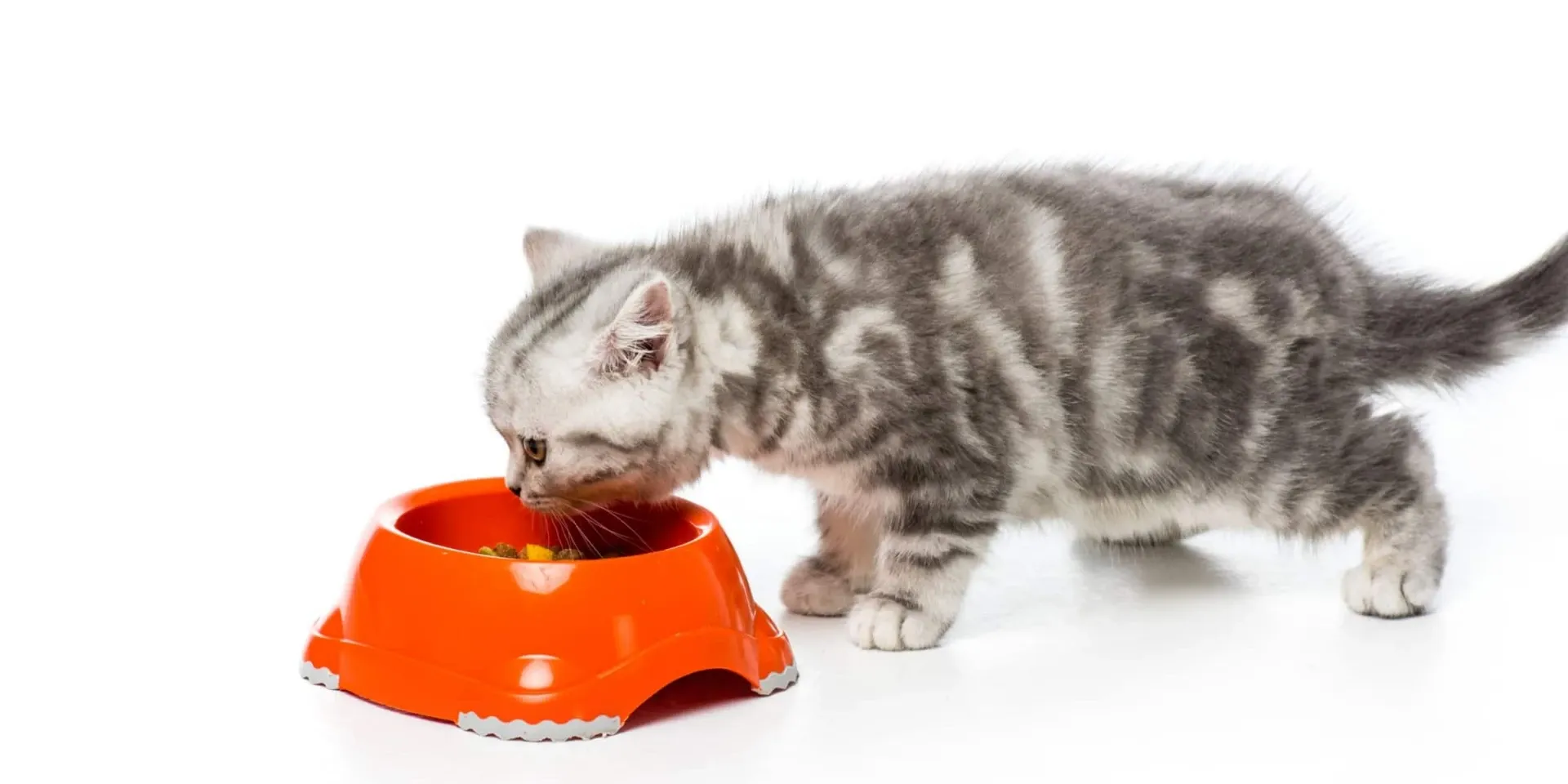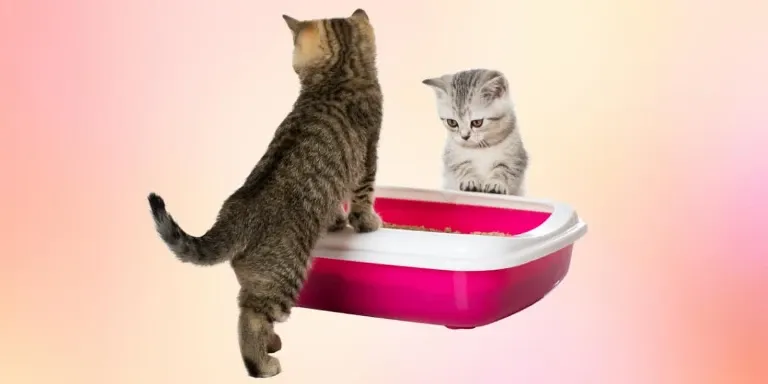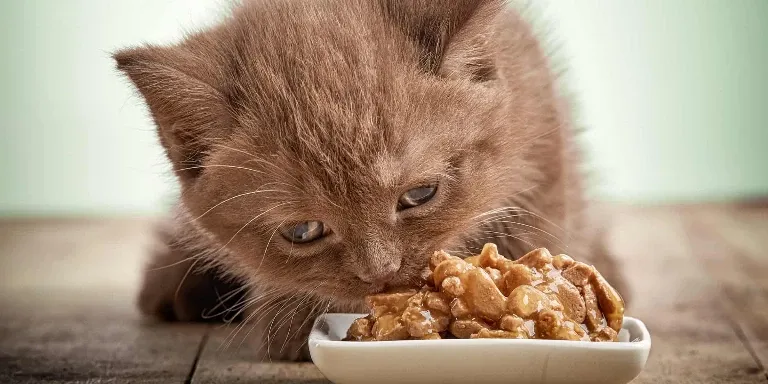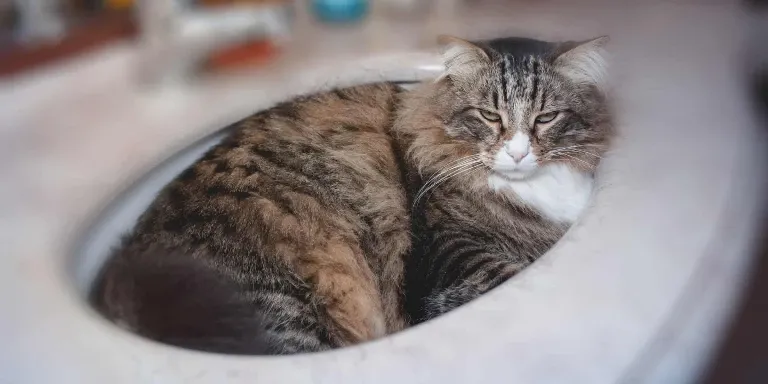The Best Fluffy Pancakes recipe you will fall in love with. Full of tips and tricks to help you make the best pancakes.

If you are a new cat owner, you may be wondering if it’s safe for your kitten to eat adult cat food. While it may seem like a simple question, the answer is not so straightforward.
It is not recommended for kittens to eat adult cat food as they have different nutritional requirements. Kittens require more protein, fat, and calories to support their growth and development. Adult cat food may not provide enough of these essential nutrients for kittens. It is best to feed them kitten-specific food until they reach adulthood.
Kittens have different nutritional needs than adult cats, and feeding them the wrong type of food can lead to health problems in the long run. In this article, we will discuss the nutritional differences between kittens and adult cats, the risks of feeding kittens adult cat food, and when it’s safe to start transitioning your kitten to adult cat food.
As a responsible cat owner, it’s important to understand your kitten’s nutritional requirements to ensure they grow up healthy and strong. By feeding your kitten the right type of food at the right time, you can help them avoid common health problems such as obesity, dental issues, and digestive problems.
So, whether you’re a first-time cat owner or an experienced one, read on to learn more about whether kittens can eat adult cat food and how to choose the right food for your furry friend.
Nutritional Differences Between Kittens and Adult Cats
You’ll want to keep in mind that kittens have different nutritional needs than adult cats, so feeding them adult cat food may not provide the necessary nutrients for their growth and development. In order to ensure proper kitten growth, it’s important to feed them a diet that is specifically formulated for kittens.
Kittens require more protein, fat, and calories than adult cats to support their growth and development. Additionally, kittens have different nutrient absorption rates than adult cats. They have a higher metabolic rate, which means they need more energy to support their growth and development. They also have smaller stomachs, which means they need to eat more frequently.
Feeding them adult cat food may not provide the necessary nutrients they need to absorb, which can lead to health problems down the road. Feeding kittens adult cat food can be risky, as it may not provide them with the necessary nutrients they need to grow and develop properly.
It’s important to choose a kitten-specific diet that is formulated to meet their unique nutritional needs. By doing so, you can ensure that your kitten is getting the nutrients they need to thrive and grow into a healthy adult cat.
Risks of Feeding Kittens Adult Cat Food
If you’re feeding your little one food that’s not quite their cup of tea, you might be putting them in deep water. Feeding kittens adult cat food can lead to potential health problems, as adult cat food isn’t formulated to meet the nutritional needs of growing kittens.
Kittens require a specific balance of nutrients, including more protein, fat, and calories than adult cats, to support their rapid growth and development. Feeding them adult cat food can lead to stunted growth, malnourishment, and other health problems.
The risks of feeding kittens adult cat food are not limited to stunted growth and malnourishment. Adult cat food often contains ingredients that can be harmful to kittens, such as high levels of calcium and phosphorus. These minerals can lead to urinary tract problems, including the formation of bladder stones, in kittens.
Additionally, adult cat food may contain ingredients that are difficult for kittens to digest, leading to digestive problems and discomfort. Feeding kittens adult cat food can have serious consequences for their health and development.
As a pet owner, it’s important to provide your kitten with the nutrition they need to grow and thrive. In the next section, we’ll explore when kittens can start eating adult cat food and how to make the transition safely and effectively.
When Can Kittens Start Eating Adult Cat Food?
It’s crucial to ensure that your little furball gets the right nutrition at the right stage of their growth to prevent potential health issues. While kittens and adult cats have similar nutritional needs, there are some differences that must be considered.
Kittens require a higher calorie intake to support their growth and development, whereas adult cats need a more balanced diet to maintain their weight.
Here are three important things to keep in mind when deciding when to start feeding your kitten adult cat food:
- Weaning age: Kittens should be weaned from their mother’s milk and onto solid food between 4-6 weeks old. At this age, they require food that is specifically formulated for their growth and development.
- Feeding schedule: Kittens should be fed small meals throughout the day as they have smaller stomachs and require more frequent meals. As they grow older, their feeding schedule can be adjusted to match that of an adult cat.
- Growth stages: Kittens go through different growth stages, and their nutritional requirements will change accordingly. It’s important to monitor their weight and adjust their diet accordingly to ensure they are getting the right amount of nutrients and are not becoming overweight.
Knowing when to start feeding your kitten adult cat food is crucial for their digestive health and weight management. In the next section, you’ll learn how to choose the right kitten food to ensure they get all the necessary nutrients for their growth and development.
How to Choose the Right Kitten Food
Choosing the right kitten food is crucial for their growth and development. It’s important to opt for high-quality kitten food that meets their dietary needs. Look for brands formulated for kittens with essential nutrients like protein, fat, and vitamins.
Pay attention to feeding schedules and ingredient labels when selecting kitten food. Kittens need to eat frequently, so choose brands that recommend several small meals a day. Read ingredient labels carefully to avoid harmful additives or fillers. Opt for brands with high-quality protein sources like chicken or fish and avoid by-products or artificial preservatives.
Introducing new foods gradually is important to avoid digestive problems. Start by mixing a small amount of the new food with their current food. Over several days, gradually increase the amount of new food and decrease old food. This way, your kitten can adjust to the new diet without discomfort or upset stomachs.
How to Introduce New Foods to Kittens
Gradually getting your growing kitty to gobble up gourmet grub is a great goal. However, before you start feeding your feline friend new foods, you must understand kitten taste preferences. Kittens have a sensitive palate, and they may not like certain foods at first. Therefore, it’s essential to introduce new foods slowly and gradually.
When introducing new foods, start by mixing a small amount of the new food with the current food. Increase the amount of the new food gradually over several days to help your kitten get used to the new taste. If your kitten refuses to eat the new food, don’t force it. Instead, switch back to the old food, and try again in a few days.
Gradual food transition is crucial to ensure that your kitten’s digestive system can adapt to the new food. Abrupt changes in diet can cause upset stomach, vomiting, and diarrhea. Always monitor your kitten’s reaction to new foods and consult with your veterinarian if you have any concerns.
With patience and persistence, you can successfully transition your kitten to a new diet that meets their nutritional needs.
Transitioning your kitten to new foods is an essential part of their growth and development. However, it’s important to note that not all kitten foods are created equal. In the next section, we’ll explore the differences between homemade and commercial kitten food and help you make an informed decision about which type of food is best for your furry friend.
Homemade vs. Commercial Kitten Food
When it comes to providing optimal nutrition for your growing feline, there are important differences to consider between homemade and store-bought options. Here are three key points to keep in mind:
- Benefits of raw: Many pet owners believe that feeding their kittens a raw food diet consisting of fresh meat, organs, and bones is the best option for providing a balanced and nutritious meal. Raw food diets can provide a range of benefits, such as improved digestion and a shinier coat. However, it’s important to make sure that the meat is fresh and free from harmful bacteria.
- Drawbacks of canned: Canned kitten food is a popular option for pet owners who want to provide their feline with a balanced and convenient meal. However, canned food can be high in carbohydrates and preservatives that may not be beneficial for your kitten’s health. Additionally, some kittens may be allergic to certain ingredients found in canned food.
- Cost effectiveness of homemade, convenience of commercial: Homemade kitten food can be a cost-effective option for pet owners who want to provide their feline with a balanced and nutritious meal. However, it can be time-consuming and require a lot of effort to make sure that your kitten is getting all the necessary nutrients. On the other hand, commercial kitten food is a convenient option that is formulated to provide your kitten with all the necessary nutrients in a balanced meal.
There are pros and cons to both homemade and commercial kitten food options. To ensure that your kitten is getting the best nutrition, it’s important to consider your lifestyle, budget, and your kitten’s specific needs.
Next, we’ll discuss the signs of nutritional deficiencies in kittens, so that you can ensure that your furry friend is getting all the necessary nutrients to grow and thrive.
Signs of Nutritional Deficiencies in Kittens
You may not realize it, but your furry friend may be showing signs of nutritional deficiencies that could be impacting their overall health and wellbeing. As a responsible pet owner, it’s important to be aware of these warning signs, especially if you’re feeding your kitten adult cat food.
Kittens have specific dietary requirements that are different from adult cats, and feeding them the wrong kind of food can lead to dietary complications. One of the most common signs of nutritional deficiencies in kittens is stunted growth. Kittens that are not getting the right amount of nutrients may not grow as quickly or as well as they should.
Other signs to watch out for include a dull coat, lethargy, and digestive issues. If you notice any of these symptoms in your kitten, it’s important to take action right away to address their dietary needs.
Feeding your kitten a high-quality kitten food that meets their specific nutritional requirements is the best way to ensure they grow and thrive. In the next section, we’ll discuss the common nutritional requirements for kittens and how to choose the right food for your furry friend.
By being aware of the signs of nutritional deficiencies and taking steps to provide your kitten with the right food, you can help ensure they live a long and healthy life.
Common Nutritional Requirements for Kittens
As a kitten owner, you need to understand the common nutritional requirements for your little furry friend.
Protein is a crucial component in your kitten’s diet, as it helps build and repair tissues and supports growth.
Fat is also essential, providing energy and aiding in the absorption of vitamins and minerals.
Additionally, carbohydrates are important for providing energy and maintaining digestive health.
By ensuring your kitten’s diet includes appropriate levels of protein, fat, and carbohydrates, you can help them grow and develop into a healthy adult cat.
Protein
Protein is a vital component in a kitten’s diet, and they need it in higher quantities than adult cats. Kittens require high-quality protein sources to support their rapid growth and development.
Protein requirements for kittens are approximately two to three times higher than adult cats, and a deficiency in protein can lead to stunted growth, weak muscles, and poor immune function. Kittens require a diet that provides a balance of essential amino acids to support their growth and development.
High-quality protein sources, such as chicken, turkey, and fish, are ideal for kittens. It’s important to select a kitten food that meets the protein requirements recommended by your veterinarian. As kittens grow, their protein needs will decrease, and they can transition to an adult cat food that provides the appropriate levels of protein.
Moving on to fat, it’s also an essential component in a kitten’s diet.
Fat
Including an appropriate amount of fat in their diet is crucial for your furry friend’s growth and overall health. As a kitten, your little ball of fur requires more fat in their diet compared to adult cats. However, too much fat can have negative effects on their health, so it’s important to know the right sources and amount of fat to feed your kitten.
Here are some things to keep in mind:
- Effects of excess fat on kittens: Overfeeding your kitten with fatty foods can lead to obesity, which can cause a number of health issues such as joint problems, diabetes, and even heart disease. It’s important to maintain a balance of all nutrients, including fat, to ensure your kitten grows into a healthy adult cat.
- Best fat sources for kitten diet: When selecting a food for your kitten, look for sources of healthy fats such as chicken fat, fish oil, and flaxseed oil. These sources are high in omega-3 and omega-6 fatty acids, which are essential for maintaining healthy skin and a shiny coat.
Now that you know the importance of fat in your kitten’s diet, let’s move on to the next essential nutrient: carbohydrates.
Carbohydrates
Carbohydrates are essential for your kitten’s growth and development as they’re like the fuel that powers your furry friend’s energy levels. However, it’s important to choose the right sources of carbohydrates to ensure that your kitten’s dietary needs are met.
Kitten digestion isn’t as efficient as adult cats, and they require more frequent meals to maintain their energy levels. When choosing carbohydrates for your kitten, opt for high-quality sources such as whole grains, vegetables, and fruits.
Avoid feeding your kitten foods that are high in simple sugars, as they can lead to energy crashes and weight gain. Additionally, always make sure that your kitten has access to fresh water as they require more hydration than adult cats.
By providing your kitten with a balanced diet that meets their dietary needs, you can help them grow into healthy and happy adult cats.
Is Tuna Safe for Kittens to Eat as Part of Their Adult Cat Food Diet?
Many veterinarians advise against including tuna in a kitten’s diet due to the potential for mercury poisoning and long-term health issues. While it’s okay for occasional treats, kitten tuna diet restrictions are in place to prevent harm from regular consumption. It’s best to consult with a vet for appropriate dietary recommendations.
Conclusion
Congratulations! You’ve successfully learned about the nutritional needs of kittens and the risks associated with feeding them adult cat food.
Remember, kittens require more protein, fat, and calories than adult cats to support their growth and development. Feeding them adult cat food can lead to various health problems such as stunted growth, malnutrition, and obesity.
To ensure your kitten receives the necessary nutrients, choose a high-quality kitten food that meets their specific nutritional requirements. Always introduce new foods gradually and monitor your kitten for any signs of nutritional deficiencies.
Whether you opt for homemade or commercial kitten food, make sure it meets the common nutritional requirements for kittens such as protein, fat, vitamins, and minerals.
In conclusion, as the saying goes, “you are what you eat,”and this applies to our feline friends too. By providing your kitten with a balanced and nutritious diet, you’re setting the foundation for a healthy and happy life.
Keep in mind the specific nutritional needs of kittens, and avoid the temptation of feeding them adult cat food. With the right food and care, your kitten will grow into a thriving and energetic adult cat.








